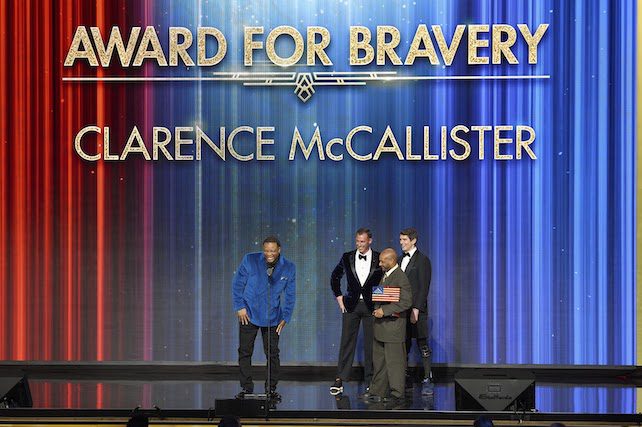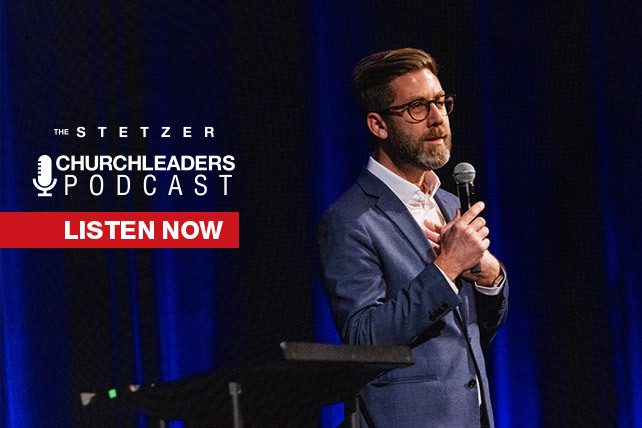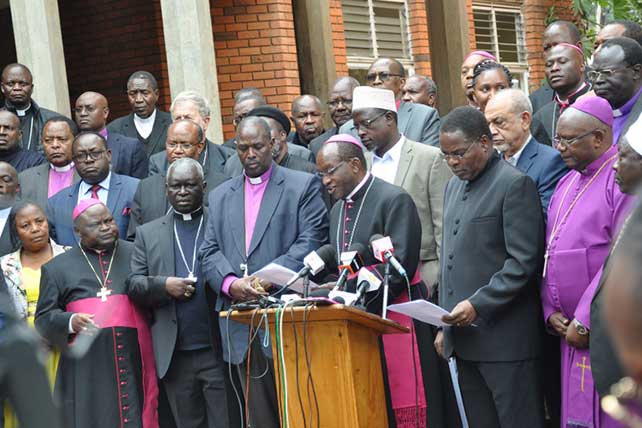David Kinnaman on The Stetzer ChurchLeaders Podcast.mp3: this mp3 audio file was automatically transcribed by Sonix with the best speech-to-text algorithms. This transcript may contain errors.
Ed Stetzer:
The Setzer Church’s podcast is part of the Church Leaders Podcast Network, which is dedicated to resourcing church leaders in order to help them face the complexities of ministry. Today, the Church Leaders Podcast Network supports pastors and ministry leaders by challenging assumptions, by providing insights and offering practical advice and solutions and steps that will help church leaders navigate the variety of cultures and contexts that we’re serving in. Learn more at Church leaders.com/podcast network.
Voice Over:
Welcome to the Stetzer Church Leaders podcast, conversations with today’s top ministry leaders to help you lead better every day. And now here are your hosts, Ed Stetzer and Daniel Yang.
Daniel Yang:
Welcome to The Setzer Church Leaders Podcast, where we help Christian leaders navigate and lead through the cultural issues of our day. My name is Daniel Yang, national director of Churches of Welcome at World Relief. And today we’re talking with David Kinnaman. David is CEO of Barna Group, a leading research and communications company that works with churches, nonprofits and businesses. Barna is partnering with leading tech innovator Glu on the state of the church initiative, which will help ministry leaders better measure human flourishing and church thriving. David is also the author of several best selling books, including Faith for exiles Five Ways for a New Generation to Follow Jesus, and Digital Babylon. If you enjoy our interviews, make sure you like and follow us on Apple Podcasts. Now let’s go to Ed Stetzer, editor in chief of Outreach Magazine and the dean of the Talbot School of Theology.
Ed Stetzer:
So David Kinnaman, I get I hate this question. So tell me what’s going on in your research? I mean, like, you get that all the time. It’s like, how do you answer that? But you’re I mean, we just did recently together, we were at the state of the Pastor’s Summit. And how would you describe how pastors are doing almost five years now post Covid? Your stat when the level of interest in resign went way up. Tell us about where that is now. Fill us in.
David Kinnaman:
Yeah, well they’re better. They’re better today than they were during the height of Covid. So that’s the good news. The bad news is there’s still a lot of discontentment among pastors about their their ministry, about about 1 in 3 tell us that they have given serious consideration to quitting. That’s been coming down in the last year. Um, but but there’s just a lot of pressures. I mean, trying to lead congregations in a politically fragmented time, in an era of social media when everyone has an opinion about everything, when everyone thinks they’re, you know, the, the Pope, you know, and so you’ve got all these challenges. My dad, who is a lifelong pastor, Gary Kinnaman, says, you know, as a pastor, you’re responsible for everything. You’re in charge of everything, but you’re responsible for nothing, you know? And so, you know, there’s a lot of challenges. But, um, you know, overall, the research is showing that pastors are recovering some from the challenges of being in the people business during Covid, much like other concert going and other kind of, you know, event management and other kinds of industries that are in very similar kind of spaces. But overall, the pastors are also aging. So the industry of of spiritual leaders is getting people not.
Ed Stetzer:
To like the word industry. But I think it’s important to know that there is a field and we see it in church planting data. Recently, the typical church planter is now in the 40s, which people kind of assume in the 20s. And pastors are aging as well. I mean, what does that look? Is it is it going year by year up one year, or is it more than that or what?
David Kinnaman:
No, it’s it’s a back in. When we did the State of pastors, the first study in 2017, the typical pastor was 54, I think. I think it’s like 5056. So it isn’t over the course of the last seven years, it hasn’t gone year by year. So there are younger, younger pastors that are replenishing that. But the fact is that there, um, we need younger leaders. We need to make sure that the pipeline of younger leaders is nice and solid, and we need lots of different ways for people to, to express this, this vocation of pastoring.
Ed Stetzer:
Yeah. And I think that part of the challenge is, is there it seems to be changing. I mean, pastoring will always have certain characteristics, but what are some of the research? And again, we shared this at the state of the Pastors Summit. What are some of the things you see, some of the trends you’re seeing that are different in the way that we pastor?
David Kinnaman:
Well, I think the expectations that people bring to it. Um, you know, pastors, the credibility has been declining in a lot of ways. People don’t expect pastors to have expertise in these different areas of, um, social trends or political space or kind of how to live life today. Um, so there’s there’s a credibility gap. Um, there is, I think, a, a pedagogical gap that people are learning now through technology and entertainment and design. They’re learning through through the algorithms, through their screens. Um, and so pastoring is really a tough, challenging environment in terms of how do we disciple people when everything has sped up and, and, you know, this fancy word pedagogical, like, how do we learn, how do we think about the content, the structures of learning. So. So if you’re going to, you know, my sister in law Kate, um, is was a piano pedagogy major, and now she does piano lessons in Honolulu. My brother’s a chief in the Navy. And so they’re they’re stationed there. It’s a great place to be stationed.
Ed Stetzer:
So she. You got to suffer.
David Kinnaman:
Suffer there. She she has all these students come through her house. And just imagine if part of the the pedagogy of, of teaching piano was, you know, just to have her do a sermon every, every kids just go ahead and sit down. Let me just explain what I’ve learned about the piano. And, um, and no one will learn how to play the piano. And I am one of the biggest believers. Uh, the research shows the importance of preaching. Christ walks among us as he is taught and proclaimed from pulpits around the world every year, um, every Sunday and every year. Um, but the the fact is that we need other pedagogical muscles in our churches to be able to help educate people about how to live as a Christian and how to play in the great symphony of faith. And I think we have to we have to look at our and that’s, you know, we’re here today at the RightNow media conference where a lot of the efforts on small groups and households and mentoring these other life on life ways that were shaped into knowing how to live, you know, in our in our homes, in our small groups, with mentors in preaching is very important, but that’s one of the other. So so talk about preaching trends or pastoring trends. How do you partner with these other ways of of thinking about the great effort of getting people to play their instruments alongside? And sometimes they’re um, it’s almost like I think we’re like junior high band teachers where there’s some squeaky instruments. That’s fair.
Ed Stetzer:
That’s fair. In another life. When I ran a research company back in the day, we did a study and we looked at what pastors thought produced the greatest outcome in disciple making and individuals, and they thought it was preaching. And then we looked at what actually happened by kind of asking people what they did and what they didn’t do. And it was actually being in small community, and that was the one that had the bigger impact. It’s a little jarring when you’re a pastor, though, because you want to know. And I think biblical preaching is a mark of a biblical church. So what are some ways you’ve seen people set a broader array of pedagogies? And I’ve got to tell you, as the dean of the Talbot School of Theology, you using the word pedagogies is great, I love it. So what are what are some of those ways that you’ve seen or maybe celebrated that churches are helping people to do more than just listen to lectures?
David Kinnaman:
Well, first of all, I think we live in such a great environment of Christian resourcing. So I think the fact that content can come through YouTube channels or subscriptions to RightNow, media or books and resources and radio, I mean, the church in North America is a is a is a well-developed. And, you know, we talk about this this phrase earlier industry and it’s just a phrase. It’s a phrase to use to describe The many and multitude ways in which education and publishing and communication. And I actually think people should be, um, able to access that and that churches in some ways are are helping to pipe people into the right channels of content. So, you know, like, where would you get the right kind of content that is larger than the sum total of what you could get in one local congregation? So that is the mystery of our lives now in a connected age, is that we can be connected with, with, with podcasters and writers. You know, we don’t have to wait for the daily news to come on our front doorstep. You know, we access it with a swipe of a finger. So the church has to be part of that larger content ecosystem. And what we’re saying, though, is that content alone doesn’t change you. It is the relationships in which that content can be absorbed and taken to heart. So let’s just talk about the field of human relationships. Um, there is so much pressure on human relationships. More loneliness, more mental health challenges. More questions about the value of marriage, about about how to have a good marriage, about how to live as a single person with faithfulness.
David Kinnaman:
There are so many questions. There’s no way the local, the local pastor, um, who can can in any way cover all those topics in the 52 weeks a year from from a pulpit. Right. They have to provide a larger framework. But we need we need small groups, households, mentors, um, coaching content, other ways that people can actually grow to learn how to have these meaningful relationships in a disconnected age. So again, something like right now, media, that content is a true library of great biblical teaching that helps to fill in all the gaps, because otherwise we’re kind of just guessing. And so we are seeing that. I mean, the church is the original social network. The church is the place where we have learned how to follow Jesus in all of these different facets of our lives. And I have this vision We’ve been working on it at Barna, trying to help equip the church to help people understand the true masterpieces that they are created to be. Ephesians 210. You know you are a masterpiece created in Christ Jesus to to do good works. These these things have been purposed for you long before the creation of the world, right? You? I actually think that the Apostle Paul would have been kind of into the Enneagram and to typing tools, because he’s like, some of you have these gifts, some of you have these gifts, some of you are apostles, some of you are pastors, some of you he’s a he’s a segmented kind of thinker.
David Kinnaman:
And I think that’s kind of cool. And and so as we imagine how the church could and just let me explain this bigger trend, we are living in an era in the digital age of hyper personalization people. These algorithms know us better than we know ourselves, and these algorithms know us better than our local church community could know us, because they see every day thousands of bits of data about the things we choose to opt into and the things we choose not to. I’m like a big Lego fan, so I build like, you know, big architecture, Legos and all the things. So, you know, my social media accounts know to prompt me with great sales and new products from the Lego company. They deplete my bank account at a at a at an unnecessary rate. So these algorithms know us really, really well. Well, my vision for the church is how do we equip? And this is what’s so amazing, actually. And in truth, the Holy Spirit knows this better than we could possibly know ourselves. And the Spirit of God walks in us through how he has made us to be. And we discover that not just through, you know, Myers-Briggs test or Enneagram test or Strengthsfinder, but through, uh, through the community helping us to discern who we are. And so, again, preaching is important. It lays the groundwork and a framework. But pastoring could also be this be re-envisioned envisioned to help people begin to put together a picture of this, this beautiful masterpiece for those who have been stuck in sin and who who, you know, all, all of us are, we have to acknowledge that, you know, one step towards becoming the true masterpiece we are is to acknowledge our deep need for a Savior.
David Kinnaman:
That’s the first step towards getting hung up on the wall in the in the museum. But then we have to have these tools to begin to take back and restore and to to discover and begin to understand that the most important things about you, you didn’t even get to choose your parents, your genetics, the time in history you were born, the country you were born into. And then it becomes, what do you make of that? Right? So I’ve been describing this as a kind of a pedagogical community, because then we actually have to help teach people to be able to play their part, their, their piece of the masterpiece in a great symphony of faith. Right. Because as we do that and that again happens in households, it happens in mentoring relationships. This happens in small groups. It can have all the wind in the sails through preaching and teaching. But that has to happen. Life on life and our vision of what we’ve been trying to work on in terms of this masterpiece project, is to give people tools to discover who they are and to be, to be able to live out of that, to be, to be all they were made to be in Christ’s great purposes for them.
Ed Stetzer:
I love how much you love church. I know that there are audiences, pastors and church leaders. Those those are the ones who listen. And I remember I know I broke your heart recently when you wrote this wonderful article for me. And in that article you talked about how much you love the church. And I said, you’re too long. Talk about how much you love the church. I need you to get faster to this. But I know that you love the church. And and so, so even this vision and, you know, I mean, sometimes, you know, people see well, people do research. Well, you do research that actually is you’re trying to make a difference with that. And you got to be careful. You’re still going to tell the truth. And the truth isn’t always pleasant. Sometimes you go to the doctor. It’s not a good report that you get back. So so what then? I mean, you talked about some of your vision, this masterpiece vision, how pastors, you know, again, our audience, our listeners, pastors and church leaders, help them see what kind of changes. Alterations. Maybe it’s a slight alteration of direction. Maybe we’re in a rut and we need to make some changes. What would you say from your look at the research pastors need to know moving forward?
David Kinnaman:
Well, first of all, the things that we’re doing today still matter. And, you know, lives are being changed at a great pace, at great in ways that we can’t even realize. Like even as we’ve been talking about preaching and teaching, you know, people are getting daily bread as they’re hearing and consuming, and you’re allowing them to sort of taste and see that the Lord is good. Um, and as we look at our, our world today, you know, when you look at tech companies, they have a they have a philosophy of human flourishing. They believe they believe human beings are designed to do certain things, whether they would use the phrase design. I mean, they’ve orchestrated this. If you remember, when Steve Jobs launched the iPhone, he said, we’re going to give you the very best tool that you possibly could, and it’s your finger, you know.
Ed Stetzer:
It was I remember.
David Kinnaman:
That, yeah. He was talking about the ways that the human? The human digits, the human fingers are just such exquisite pieces of creation. So I would encourage you to think about how do you help connect people? The framework is through preaching and teaching. The mile mile markers are the Sunday sermons. But also how do you become this sort of pedagogical community that helps people to discover who they are? And again, I think this youth ministry, children’s ministry, small group ministry could be organized around like this journey of who am I and who am I created to be? Where is my story fit in this larger story of Jesus work in the world? We’ve been working on some tools that relate to that. But I mean, I think, well.
Ed Stetzer:
The pedagogical community I really like and the tools. So like one of the things is you can do we talk about state of the church. I want to talk about the state of the church. You can actually look at the state of your church as well. So talk to us a little bit about that. And don’t let me just say I know it’s my podcast, but tell us how awesome it is. I’m inviting you to tell us how awesome it is. Right? So tell me.
David Kinnaman:
Well, we. So a lot of people know Barna through the state of the church. These larger, broader trends, like people will ask me like what’s happening? What’s the what’s the state of.
Ed Stetzer:
The question at the beginning that I hate all the time? Like, what do you want to know? Yeah.
David Kinnaman:
Like, what trends are you seeing?
Ed Stetzer:
Exactly. Yeah. Sit down. Let me buy you a coffee. Tell me what trends you’re seeing. Okay.
David Kinnaman:
I don’t even know where to start. Exactly. I’m like.
Ed Stetzer:
You mean trends among junior highers and Bible reading? Sure. I can tell you that.
David Kinnaman:
Um, but what we’ve been working on with our friends at Glu for about six years now is the state of your church. And, you know, for many years there are tools and resources to do self-assessments within the congregation. But we’ve really organized this to look at the 15 dimensions of a thriving church. Example prayer culture. You know how well, how well are we doing at instituting a praying community? Bible centeredness. Are we a Bible centered church? How do we think about, you know, sort of evangelism? Are we evangelism? 15 things we’ve taken, you know, 40 years of our history, a lot of other research to try to develop these 15 core dimensions of a thriving Church. And then we also know there is different dimensions of how human beings are flourishing, like relationships and spirituality and financial and vocational purpose oriented things. And so the Church Pulse is really a free tool that you can deliver and have your church take just a couple of questions on each of these dimensions. It doesn’t take very long, but it gives you a snapshot. It’s like getting your pulse taken. It’s like getting your cholesterol checked. And there’s a reason why these sort of standard metrics matter, because with a quick little snapshot, we can get a better sense of how well we’re doing. Now, I’m I’m clear that as a as a church leader, you do this. And sometimes you give your board or the people around you a stick to beat you with. It’s true. And so we’ve been really careful about how to design this so that it’s, it’s very it’s very directional and helpful. But it’s not it’s not about how well you’re doing as a pastor so that people around you can, can give you. Well, as you know.
Ed Stetzer:
I when I was leading research, we spent hundreds of thousand dollars developing a tool that I thought was really good called Transformational Church Assessment Tool. And pastors didn’t want to take it because it’s like sometimes, I mean, men have a reputation of not going to the doctor. And in this case, you’re going to the doctor with your elders. So so I like the directional aspect of and I think it just it does it still gives you helpful information, but points you in a better direction because that tool people just use. I was so proud of it. I was so worked hard on it, but I think we see it as well. Like with reveal other things, people, they’re just pastors are nervous about somebody who’s going to say you’re doing a bad job. So this doesn’t say, this says, here’s where you are, here’s how you can improve. Work on those things.
David Kinnaman:
Correct. Exactly. And and the whole notion is as a, as a leader, I mean, some of these larger things we’ve been talking about for the last number of years or I’m sorry, some of these things we’ve been talking about, the last number of minutes, it feels like years.
Ed Stetzer:
It’s been a long interview.
David Kinnaman:
But the notion of how do we how do we shift our mindset? I mean, one of the most important ways we shift our mindset as pastors isn’t just whether people showed up. But whether they are, whether we are actually helping them to grow in how healthy they are when it comes to relationships like the gospel is for all of life. So we’ve developed this tool as a really a warm invitation for you to be more connected with the transformational outcomes you’re trying to achieve in the lives of the people. Like why you got into ministry was to change people’s lives. We think this church pulse helps you to see your people better. It also helps you to understand how are we doing in some of these core dimensions of a thriving church? Can we get better? How do we improve? What would be ways we could? We could do this a little bit differently, and it.
Ed Stetzer:
Does help people. One of the things we hope with our tool that that actually didn’t accomplish fully, what we wanted to do was that teams would take it together and say, hey, this is going to work on together. But because it was like a doctor’s check for us, I think your approach is more redemptive. Our approach was more examined, and I think I think that’s a better it’s helping churches more. And I and I like it, but thanks.
David Kinnaman:
Well and to brag on I mean again our friends at Glu and the capabilities that they have are kind of crazy. It’s pretty amazing. And we live in an era now where where so much people are even more accustomed to taking these quick surveys. And again, I think there’s a good question of like the theology of measurement and how do we actually get into this? So, you know, each church is going to have its own approach to that. But we want you to measure what matters. We want you to be able to take, uh, take a better sense of like, okay, how do we progress this? And, and by the way, the other the other thing that I think is under the surface of some of these trends is most people get into ministry because they they like to teach, they like to exposit, they, they, you know, seven out of ten pastors say their favorite thing to do is to preach and teach. We need a more robust and broad, um, skill set. I mean, I think we talked about this earlier, but there’s a reason why Paul says there are apostles and they’re prophets and they’re evangelists, and there’s pastors and there’s teachers. There’s different gifts. And we need a more full expression of the gifts that God has given us so that the church can be a healthier version of itself.
Ed Stetzer:
Talk a little bit about you. Talk about measuring what matters. Um, you know, pastors and church leaders. They see a lot of I mean, there’s a lot of research now. I mean, when you’re when George Warner was first doing this, he became the most quoted person in Christianity. Yeah. And I think partly because he was like such a pioneer. I mean, Gallup was doing some stuff.
David Kinnaman:
First mover advantage, for sure. For sure.
Ed Stetzer:
And so so so now you just have this array of different research. Talk to the pastors and church leaders who listen to the podcast. What should they like? How much time should they be spending on research and what should they look for? Help us to be better users of research in general, because there’s so much, so many. And I and I cautious about some of it. Some is just bad research. I mean, you and I have been quoted in places saying some crazy statistical things that neither of us said. Yeah. I actually called you once because I was trying to debunk this thing and it said, Barna said this, and you said, I assure you, Barna never said that. Yeah.
David Kinnaman:
We didn’t even research it.
Ed Stetzer:
Exactly. But but I went back to the people who quoted you said, no, we got it from Barna. I’m like, no, you did. I talked to them. They didn’t. Yeah. So people. But so how? I mean, how can we be good and better users of research as pastors and church leaders?
David Kinnaman:
Well, I think first of all, like, who are the sources you’re going to trust? You know, get educated on the methodological realities. I think people are pretty good at being skeptical about the data that they don’t believe, because it doesn’t conform to their perspective. So anytime you find something that really confirms something you believe, you should be even more skeptical because you believe it so much. But also the things that you don’t believe you should say, you know, let me take a look at this. What could I learn from this? Is there something about why this doesn’t fit my worldview that I should try to lean in on? And I think we’re we’re in a, in a period of time where, you know, obviously, like even skepticism towards media is at an all time high and mainstream media. And there’s a reason why news and news outlets and journalists are often, like, not trusted. It’s because we’re wondering, like, well, what’s the story behind the story? Again, I think all that’s actually a really good, healthy instinct. But, you know, I think figuring out what is your own data stream, how are you going to keep track of the things that are most important to you? So if you’re interested in relationships, like I think it’s important to, you know, figure out how how can we learn as much about the current issues related to to relationships? Um, you know, how do we pay attention to the, the real issues that people are having to address in, in human relationships? And then and then how do you get a lot of experts around you in ministry to help, help you do that? And, you know, obviously at Barnard, we’d love to be, you know, your sort of your data Sherpa.
Ed Stetzer:
Sherpa, Sherpa, trusted source. And I think there is a certain sense that, that there is helpful to have, to use another term, a maven that sort of says, you know this, you can believe this. You, you know, and I, I mean, I remember a few years ago, I think this was when I called you is there was this survey that said that 89% or maybe it was 90 something percent of people who fill out this survey thought that youth groups were contributing to. It wasn’t called deconstruction. Aha. And so I was like, that’s what in the world. So I went and tracked down the survey, and it was actually a survey at a website against youth groups. So 98% of people who go to the website against youth groups think that youth groups are bad. And it’s like it’s like, you know, what are you even thinking? But it was just it was it was it was in a news story in like, I mean, it wasn’t a top tier Christian magazine, but it was in it was you’d know the name. Yeah. And so and I actually called up and said, you guys, you got to look at this. So having a maven sort of gathers and helps helps that as well. But part of the challenge is too is that there’s there’s different sources. And some of those sources have an agenda. Um, and I guess I never I remember speaking to Religion News Service and said everyone has an agenda. So the question is, is are they transparent about their agenda? So, so how do you like, know or tell? Is there a way to know or tell if somebody has an agenda.
David Kinnaman:
Beyond the fact that everyone has an agenda? Yeah, I guess so.
Ed Stetzer:
The fact that maybe causing them to present misleading data is a better way to put it.
David Kinnaman:
Yeah, well, I mean, I don’t know if this is quite the direction. I don’t know. I don’t know. No, it’s a simple answer to that. A simple heuristic to that. But I would say that, um, it’s interesting because one of the areas of skepticism that people have towards social research, for example. And by the way, I think we should be really skeptical of social research because like what questions you ask and who you ask and, you know, can we predict elections anymore? All those kinds of things are.
Ed Stetzer:
Clearly not so.
David Kinnaman:
Are important questions to ask. But one thing about, you know, so like the self-reported religiosity of Americans is still a stunning part of our, of our society, the fact that that more than six out of ten describe themselves as Christian, many are spiritual, but not religious or whatever, or the percent of the matter of great debate is how many people go to church.
Ed Stetzer:
Yeah, congressional. I just shared right now conference a congressional election survey said that it’s a 24% say they go to church weekly or more. And of course, you know, we we know the halo effect. We know those things are there.
David Kinnaman:
So to me, it’s always like, well, isn’t it interesting that people, even if that is an overstatement, it’s interesting that people want to overstate that they see.
Ed Stetzer:
That as a value.
David Kinnaman:
Yeah, that’s.
Ed Stetzer:
Exactly what I just said. You were not listening to my talk. You were outside the hallway. That’s exactly what I said. I probably said David Kinnaman taught me.
David Kinnaman:
Um. Well, you just so you. I think the tracking back to your question is the the notion that if we understand why someone would have an agenda, right, and what the nature of their agenda is and how we can, again, learn from people that have a lot, a lot of differences of opinion. Right. And, um, you know, I think, I think one of the great skill sets for us in the church is to be able to, you know, see and to hear. I mean, let him or her who has ears, let them hear. And, um, it’s been one of the great privileges of my life is to be able to, like, listen to and hear people that I would just completely disagree with and be able to like, okay, that’s a fair. Like, that’s an interesting question. An answer to that question. Let me tell your story as faithfully as I can. And, you know, listening to people who’ve lost their faith. I mean, like, that is a hard thing. I’ve studied that for the better part of two decades now, and it crushes me. But I’m like, let me, let me try to faithfully explain to others who would care a Christian leaders, for example, why it is that you feel this isn’t working and it’s not what I would do, it’s not what I did. But I do understand the intellectual journey people have, or the emotional journey or the hurt journey. And I understand, and this would be my final answer to that question. Or another way to think about it is let’s take these presuppositions then, and even our own ability to like, see and to know and to perceive and take that to the Lord and say, Lord, here’s here’s all the things I’ve been thinking and reading, and can you help me make sense of what it is you want me to do with this? That’s good. And the you know, the Lord is is as as James, right? Like the Lord is eager to give wisdom to anyone who asks. It’s good.
Ed Stetzer:
Um, speaking of deconstruction, um, people talking about it a lot lately. Matter of fact, I hired a guy that was talking about you. Wrote for me at outreach magazine. You’re a columnist. You’re writing an article there. I had I hired a professor at Wheaton, Michael Lee, who wrote his PhD dissertation on missionaries and pastors who deconverted. So I had him write on it in the magazine as well. So people are interested in this topic. But in the state of church research last round, we’re going to talk about the next round. In just a minute. I’m going to quote you. You found that quote, many people who say they are deconstructing the faith of their youth are still Christian and still in the pews, unquote. So what can you help define us, what deconstruction is and what it looks like and the different expressions of it?
David Kinnaman:
Yeah. Um, I think that’s one of the things that social research can be pretty helpful to do, which is to put kind of more concrete language about around kind of fuzzy concepts. So deconstruction can be self-defined. So about half of all Americans say they have gone through a period of faith or a period of time in their life where they’ve deconstructed the faith of their youth or deconstructed faith. That’s and it’s even higher among millennials, about 60%. And so they use that phrase. But then when you cross-reference that data point against other self-identity or religiosity measures, many of those people can still be active churchgoers. And it can have a really interesting, um, there’s two different effects. So among some set of people they deconstruct, but then their faith is even stronger. Interesting. And then there’s another group of people. The more common one is that they’re they’ve deconstructed and their their faith is weaker. They’ve either stepped outside of the church or outside of faith entirely. To say this doesn’t make sense to me. Um, or they’re just sort of kind of nomads. They they come once in a while to church. Um, and so this kind of broadly is like doubt doesn’t always cripple people. It actually can provide a kind of catalyst to a deeper faith and a.
Ed Stetzer:
Dark night of the soul or something like that, to use a historical reference. So Deconversion is not I’m sorry, deconstruction is not always deconversion, but sometimes we equate that as the two. Correct?
David Kinnaman:
And I mean no better example of how we use data. And I think this gets to one of the themes we’ve been sort of circling around is very important. How we use it when we communicate is critical. Now, if sometimes we have to simplify things down to, you know, like here’s the stat or here’s an idea, but like an example. For years, people would say 80% or more of young people are walking away from the faith. That’s just not true. But you can parse it and begin to say, well, about 20% of young people who grow up as Christians become prodigals. They lose their faith. They become ex-christians. Another percentage of them, about 40% are are nomads.
Ed Stetzer:
We know we’re good with the abouts. So 20%?
David Kinnaman:
Yeah, 20%. 40% are nomads. And then another percentage of them, about about 30, 35% are habitual church goers. And then about 10% are resilient disciples. And so, you know, this, this, this range of things. And that’s where I think research is good, because with just a couple more questions, you can start to have some better filtering. And that’s I think so as you’re as you’re using stats as a church leader, um, I think it’s important to quote your source to like, understand like even are you using this in a rhetorical way that helps to illuminate something and give people a better perspective about someone else’s experience? Or are you also trying to, like, hammer down a point that you know that that that someone could fact check and then say, well, you know, you’re actually not not accurate? And I think that’s important. So, you know, people can simplify these really complex stories, like people are losing their faith and and youth group is the problem.
Ed Stetzer:
Is a problem because I went to the website against youth groups and I voted on that and that survey is there. But, you know, people saying Christians, non-Christians divorced at the same rate really depends on like, are you talking about 60% of Americans plus say they’re Christians, they divorce at a similar rate or those people are not. That’s right. But practicing is a different category. Or 88% of evangelical youth drop out of church after high school, never to return. The stat that’s been cited quoted to you and me. And neither is true. We both know where it came from, and even that person says, I never said that. So. So again, that’s helpful to check those things. Okay. So you did say to the church, did say to pastors, but now we’re coming in and doing you’re coming in to do state of the church again in 2025. Give us a little preview of where that’s going.
David Kinnaman:
Well, the church is still here. I mean, the good news is I’ve heard.
David Kinnaman:
That it’s.
David Kinnaman:
Still around and the gates of hell will not prevail against it. But yeah, we’re working on a broad set of themes. There are some social research findings, like what does the Bible reading trends, what’s the church attendance trends? How has Covid changed any of that? How are people living out their faith in the world? A story of entrepreneurs, faith filled Christian entrepreneurs. So we’re doing a range of really cool new data stories that come into 2025. Obviously, we would love and invite you into the state of your church, and that’ll be a big part of our ongoing theme, which is to help you measure what matters in your ministry. And we’re doing a series of articles and studies on what’s working like. How can we drill down on some of the practices that seem to make a difference in helping to transform lives. So those are some things. And really the whole the whole, you know, we will be doing state of the church for as long as there is a church to be doing, but you do.
Ed Stetzer:
Have sort of markers in 2025 will be one. I’m going to get to be a small part of that. I’m doing a little tour. Yeah. But some of the stuff you’re going to be a part of that some as well. Part of Talbot School of Theology Lead the Way tour, but it’s going to be powered by state of the church with some of the data we’ll be sharing. So I think I think after Covid, I mean, everything was just like you look at the numbers of the General Social Survey. I’ve been using the General Social Survey, like forever. I love the General Social Survey. Yeah. And it was useless for, for for 2020 and 2022 and 2024 starts to return. I think 2025, we can see just what happened and where are we going. And so I’m excited about a fresh set of data, and I’m looking forward to learning from you and the Barna team as well.
David Kinnaman:
Yeah. Likewise. Yeah. And I think this vision of trying to help equip you and outfit you for effective leadership in the days to come, how do you view the people in your church as, as as much more than just people who show up, but as people who are called and equipped and anointed for ministry in the world. And, you know, how do you how do you partner with them and get them ready to do all they were made to be?
Ed Stetzer:
David Kinnaman Barna Research thanks for taking the time.
David Kinnaman:
Of course. Pleasure to be here.
Daniel Yang:
We’ve been talking to David Kinnaman. Be sure to check out his book, Faith for exiles, as well as the resources available at Barnett Comm. And thanks again for listening to this Church Leaders podcast. You can find more interviews, as well as other great content from ministry leaders at Church leaders.com/podcast. And again, if you found our conversation today helpful, we’d love for you to take a few moments, leave us a review, give us a like and a follow, and that will help other ministry leaders find us and benefit from our content. Thanks for listening. We’ll see you in the next episode.
Voice Over:
You’ve been listening to the Stetzer Church Leaders podcast for more great interviews as well as articles, videos, and free resources, visit our website at Church leaders.com. Thanks for listening.
Sonix has many features that you’d love including secure transcription and file storage, enterprise-grade admin tools, upload many different filetypes, generate automated summaries powered by AI, and easily transcribe your Zoom meetings. Try Sonix for free today.

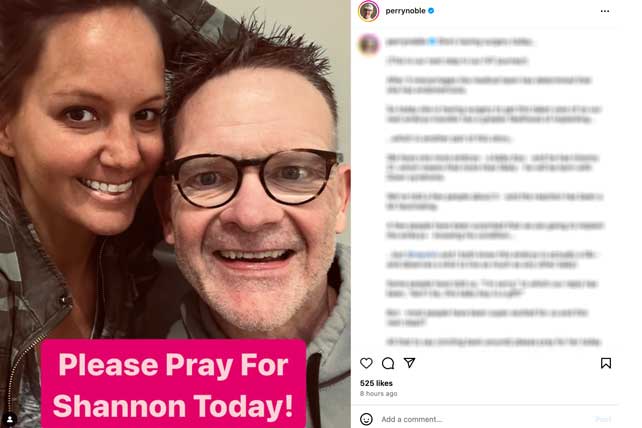


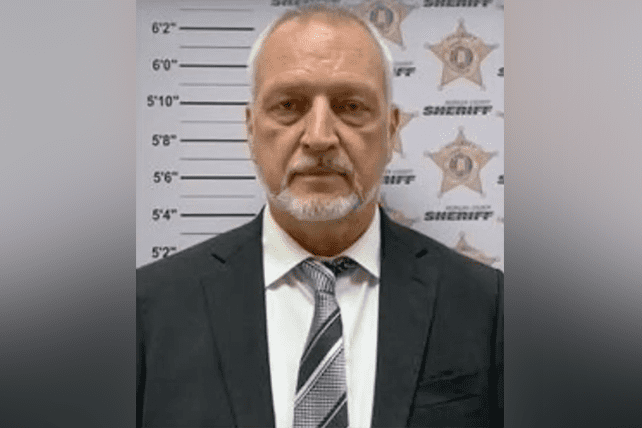

 In exploring the profound concept of identity, we delve into how one’s conscious sense of self is shaped by personal, social, and psychological dimensions. Central to this discussion is the Christian perspective of finding one’s identity in Christ, where believers strive to align their self-perception with how Jesus views them and live out their created potential according to his design.
In exploring the profound concept of identity, we delve into how one’s conscious sense of self is shaped by personal, social, and psychological dimensions. Central to this discussion is the Christian perspective of finding one’s identity in Christ, where believers strive to align their self-perception with how Jesus views them and live out their created potential according to his design.





